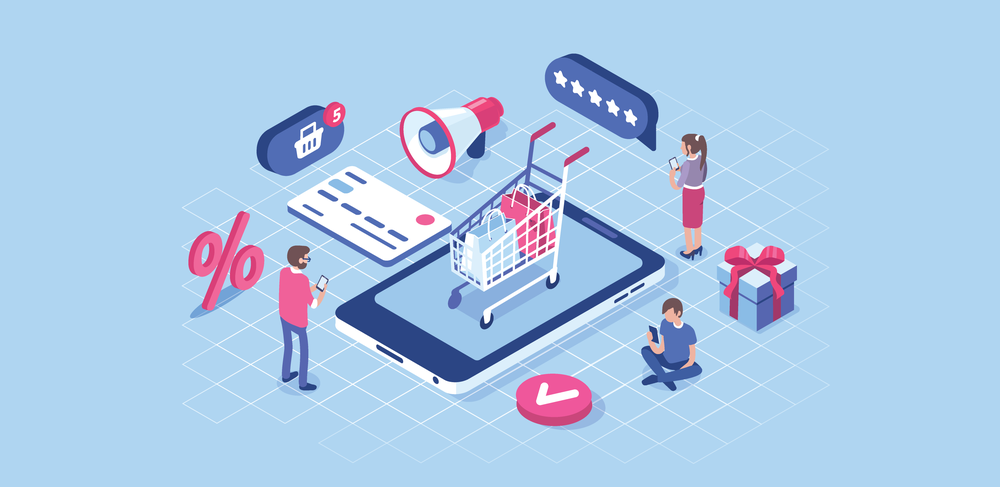What is B2C ecommerce?
Business-to-consumer – or B2C – ecommerce is the term used for sales transactions between a business and a customer. Before the digital age, this B2C was used to describe the process of selling goods directly to people, whether in-store or on the streets. But since the growth of the internet, it is now a term to describe sales between online retailers and internet shoppers.
Benefits of B2C ecommerce
Global reach
The top benefit of B2C ecommerce is the global reach you can achieve. Ecommerce made it possible even for small businesses to sell from their homes to different parts of the world. The ability to sell to anyone from any corner of the world eventually ensures success is inevitable.
Low physical overheads
B2C is a common mode for in-store shopping where the customer needs to go to a physical store to get something from a brand. With the help of the ecommerce element in business, the management can lower their material overhead costs. By shutting down a brick-and-mortar store that is not doing well and spending a fraction of that money on marketing, you can send customers to your online shop to make the same purchases.
Better data profiling
Moving your business online opens doors to receiving more refined data on your customers. Using tools like Google Analytics, you can make user profiles that target them accurately. Moreover, this data also helps in psychographic profiling as you understand your customer’s purchasing behavior. You can make user personas that speak directly to the related person and increase your ROI with in-depth information.
Better marketing
Traditional marketing procedures have always been hard to track. In ecommerce, you can give your marketing initiatives a boost by being able to track the performance of all campaigns. Google Analytics reports show you how a customer entered a site, where they went, and how they left. With this crucial information, you can build a stronger marketing plan that converts more customers.

The difference between B2C and B2B
While B2C describes the sale of goods to customers, B2B – or business-to-business – is the name for selling products to other businesses. B2B is the business model that does not sell to consumers but instead to other businesses that can then sell to them.
An example of a B2B company would be one that sources the builds and sources parts computers. The company that builds the computers is known as a manufacturer or wholesaler. These computers, when fully built, will then be sold to retailers that will sell them to customers. The process by which the retailer sells the computer is B2C.
Wholesalers and manufacturers will work on much bigger scales of sale. While a customer will only buy one computer, a retailer will buy several. As such, wholesale products will sell at a lower cost per item, under the condition that they buy more. This will allow a B2C business to sell the item at a higher margin to recoup the cost and profit.
Some companies operate as both B2B and B2C. Typically these are establishments or wholesalers that deal in large-quantity household goods. An example of this would be a hotel that offers venue space for weddings (consumers) and business conferences (businesses).
B2C dropshipping
Dropshipping involves a seller placing an order on behalf of a customer through their supplier. By having the supplier ship directly to their customer, the seller avoids any costs for packaging or shipping. By routing sales through a wholesaler or manufacturer, smaller businesses can maintain a high demand for products with minimal involvement.
Dropshipping is an effective business model in the online sphere as it means a seller will not need to store stock. B2C companies are a go-between for manufacturers and customers, allowing them to save time and money. These savings can be put into further marketing and product designing, helping to improve the business further. It also allows the seller to scale their company according to the success they see, as wholesalers can produce more items than an individual could.
B2C marketing
B2C marketing tactics require a much greater degree of engagement with customers. While a B2B company merely has to show what it offers to businesses, a B2C must sell its products to its audience. This means that many B2C marketing strategies will involve creating emotional connections between their customers and themselves.
This is done by creating a friendly, welcoming company with which a customer can bond or instill a sense of need in them for the product.
The ultimate goal of a B2C marketing campaign is to make the customer want to buy their product. It could be that the customer feels that a particular pair of walking shoes will be ideal for their lifestyle or that a specific company will know best how to provide insurance for their family. It is up to the business to find out what their target audience wants and present themselves in a way that makes them want their product or service.
This is not easy to achieve, and often B2C marketing campaigns will fail or fade from memory. If a company tries to be too broad or gentle, few people will create a bond with them. If they go too harsh or too aggressively, then they will put them off. The best campaigns are those that find a perfect pitch with which to resonate with their audience. Snappy slogans, memorable jingles, and powerful imagery all matter in creating a lasting impression.